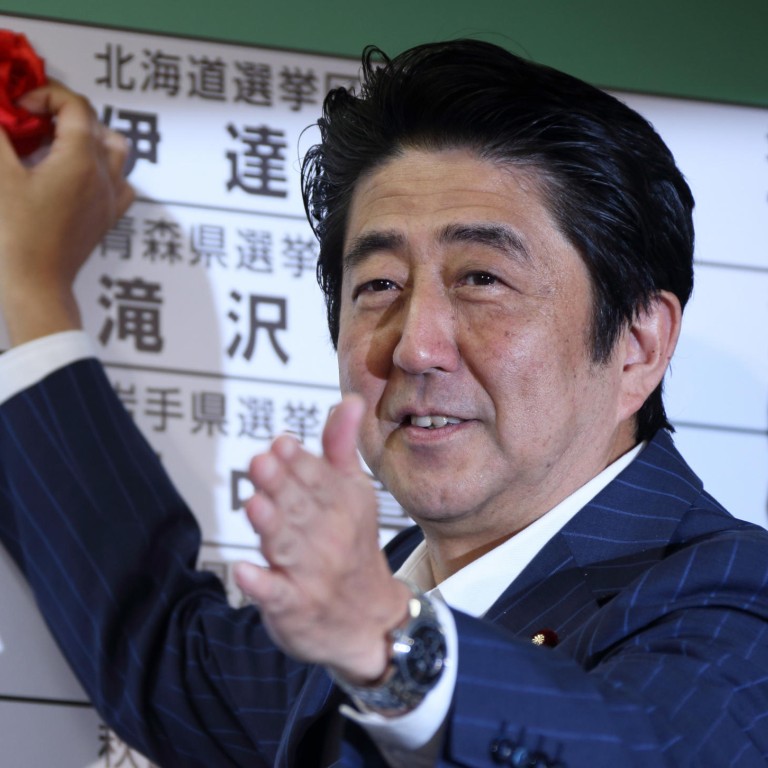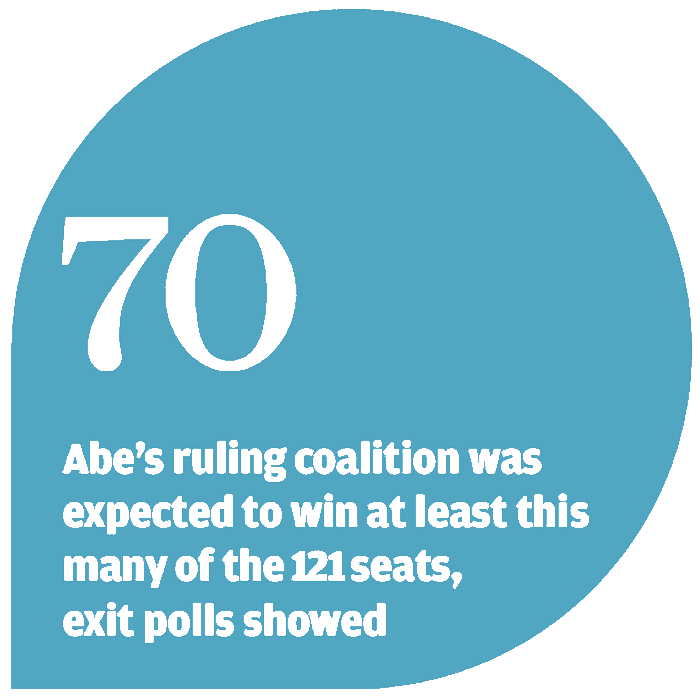
Japan PM Shinzo Abe claims decisive victory in upper house election
Prime minister promises to breathe life into economy after his ruling coalition snatches a convincing victory in upper house election
Prime Minister Shinzo Abe's ruling bloc won a decisive victory in an upper house election yesterday, setting the stage for Japan's first stable government since the charismatic Junichiro Koizumi left office in 2006.

"I want to make a virtuous cycle of improving the employment situation, increasing salaries and bringing about a rise in corporate investment."
Media exit polls showed Abe's Liberal Democratic Party (LDP) and its coalition partner New Komeito would win more than 70 of the 121 seats up for grabs in the 242-seat upper house. With the coalition's uncontested 59 seats, that hands it a hefty majority.
The win spells a personal political redemption for Abe, who led the LDP to a humiliating defeat in a 2007 upper house poll during his first term as premier.
The ensuing parliamentary deadlock allowed the opposition to block legislation and led to Abe's resignation just two months later.
That "twisted parliament" has hampered policies for most of the six years since and led to a string of revolving-door leaders.
"People wanted politics that can make decisions and an administration with a stable grounding, which led to today's result," LDP Vice-President Masahiko Komura said.

Critics worry Abe will shift focus to the conservative agenda central to his ideology, and concentrate on revising the post-war pacifist constitution.
Such a shift, along with moves to strengthen Japan's defence posture, would further fray ties with China and South Korea. Tokyo is already locked in territorial rows with Beijing and Seoul.
Professor Liu Jiangyong , an expert in international relations at Tsinghua University, said the Abe administration's hard-line stance on relations with China and South Korea would be unlikely to change.
Since the party has won in a landslide, "Abe can start making plans for a more long-term stable government because there won't be another national election in the next three years," he said.
"Abe will likely work toward constitutional revision and recasting Tokyo's wartime history with a less apologetic tone. That will fray ties with China and South Korea," Liu said.
Xinhua ran an article headlined "Japan's future direction is worrisome" last night, with observers dubious about recent nationalistic moves by Abe, including touring islets close to the disputed Diaoyu, or Senkaku, Islands. It said if Abe remained provocative, he would further lose the trust of the international community and negatively impact regional stability.

